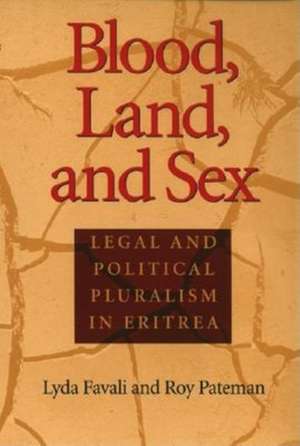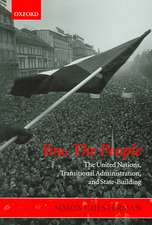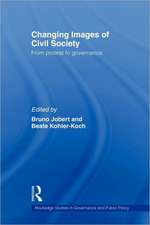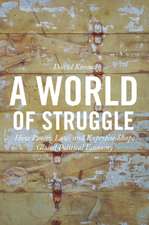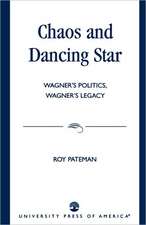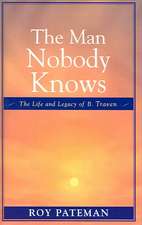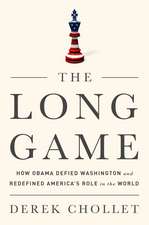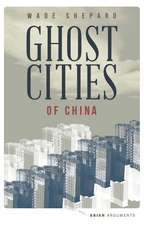Blood, Land, and Sex – Legal and Political Pluralism in Eritrea
Autor Lyda Favali, Roy Patemanen Limba Engleză Paperback – 17 iun 2003
Preț: 187.82 lei
Nou
Puncte Express: 282
Preț estimativ în valută:
35.94€ • 39.03$ • 30.19£
35.94€ • 39.03$ • 30.19£
Carte tipărită la comandă
Livrare economică 23 aprilie-07 mai
Preluare comenzi: 021 569.72.76
Specificații
ISBN-13: 9780253215772
ISBN-10: 0253215773
Pagini: 376
Dimensiuni: 156 x 235 x 15 mm
Greutate: 0.53 kg
Editura: MH – Indiana University Press
ISBN-10: 0253215773
Pagini: 376
Dimensiuni: 156 x 235 x 15 mm
Greutate: 0.53 kg
Editura: MH – Indiana University Press
Cuprins
Preface and Acknowledgments; List of Abbreviations1. Facts and Ideas: The Struggle for Power and Legitimacy2. From Tradition to Globalization3. Changing Leadership, Unchanging Law4. The Transitional Period and Attempts at Legal Reform5. From Blood Feud and Blood Money to the State Settlement of Murder Cases6. Land Tenure on the Highland Plateau7. Land Disputes and Conflict Resolution8. The Virgin, the Wife, the Spinster, and the Concubine: Gender Roles and Gender Relations9. Female Genital Mutilation: Symbol, Tradition, or Survival?10. Creating Space in a Changing World for Traditional and Religious LawGlossary; Notes; Selected Bibliography; Index
Recenzii
Pateman (Univ. of California, Los Angeles) and Favali (law, Univ. of Turin, Italy) use a legal pluralist approach in an admirable attempt to unravel the intricate fabric of Eritrea's system of law. Eritrea is not atypical of African states with a population abundant in ethnic, social, linguistic, and religious diversity overlaid with a colonial past, a liberation struggle, a transitional era, and independence. For every legal issue there is a state rule, a traditional rule, and a sharia rule that may or may not differ because of divergence between state and ethnic or religious groups. Four major actors--the state, ethnies (producing traditional law), religious groups (mainly Coptic Christians and Sunni Muslims), and the international/transnational community--operate in this maze and define contemporary Ethiopian law. Complicating this task is the use of languages of state law, Amharic, Arabic, Italian, English, and now Tigrinya incomprehensible to many in a society dependent on oral traditions. The authors analyze Eritrea's pluralist system in case studies involving the interconnected issues of blood (vengeance, feud, money, and settlement of conflicts), property rights, and sex (marriage, gender, and women's rights). Conclusions are in abeyance because the dictatorship of Isaias Afweki is in legal limbo with a new constitution not in force. Summing Up: Recommended. Graduate collections and beyond.--T. M. Vestal, Oklahoma State University, 2004mar CHOICE
Notă biografică
Descriere
A pathbreaking study on the persistence of traditional law in a modern African state.
